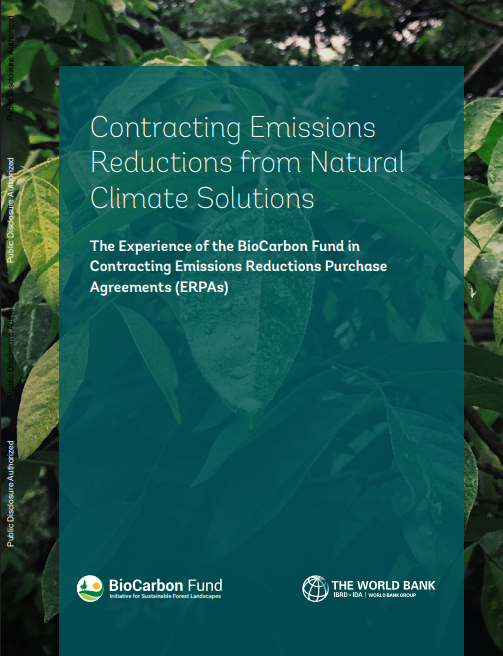As countries seek to tap into the growing potential of carbon markets and results-based climate finance, a new World Bank report offers a behind-the-scenes look at how the BioCarbon Fund Initiative for Sustainable Forest Landscapes (ISFL) is helping partner countries negotiate and contract for high-integrity carbon crediting agreements.
The report, Contracting Emissions Reductions from Natural Climate Solutions, distills more than a decade of experience in designing and implementing Emission Reductions Purchase Agreements (ERPAs) under the ISFL and its sister fund, the Forest Carbon Partnership Facility. It breaks down what’s needed to ensure that the resulting carbon credits are robust, credible, and equitable.
From setting clear legal terms and establishing rigorous measurement, reporting, and verification (MRV) systems, to ensuring fair benefit-sharing with local communities, the report highlights how ERPAs can be used not just as contracts—but as tools to catalyze long-term climate action and sustainable development.
“ERPAs are much more than financial agreements. They help lay the foundations for strong governance, transparency, and accountability—elements that are critical for building trust in jurisdictional carbon programs,” said Roy Parizat, Senior Economist at the World Bank. “Ultimately all of our ERPAs are focused on driving development benefits to rural populations, helping them build their incomes and resilience while protecting their forested environments."
Drawing on ISFL’s practical experience in countries like Zambia and Ethiopia, the report explains how ERPAs are tailored to local contexts while upholding shared standards of environmental and social integrity. It also highlights how ISFL programs allow countries to access carbon finance while maintaining flexibility to seek higher market prices for excess credits.
In Zambia’s Eastern Province, for example, the government signed a landmark ERPA with the World Bank in 2024, securing up to US$30 million in payments for verified emission reductions. The program supports efforts to reduce deforestation and promote climate-smart agriculture, with revenues from credit sales flowing back to local communities through a structured Benefit Sharing Plan.
With carbon markets evolving rapidly, this new resource aims to support governments and practitioners looking to unlock the benefits of results-based finance for nature-based solutions—while ensuring communities and ecosystems remain at the heart of the effort.
Click here to download the report

